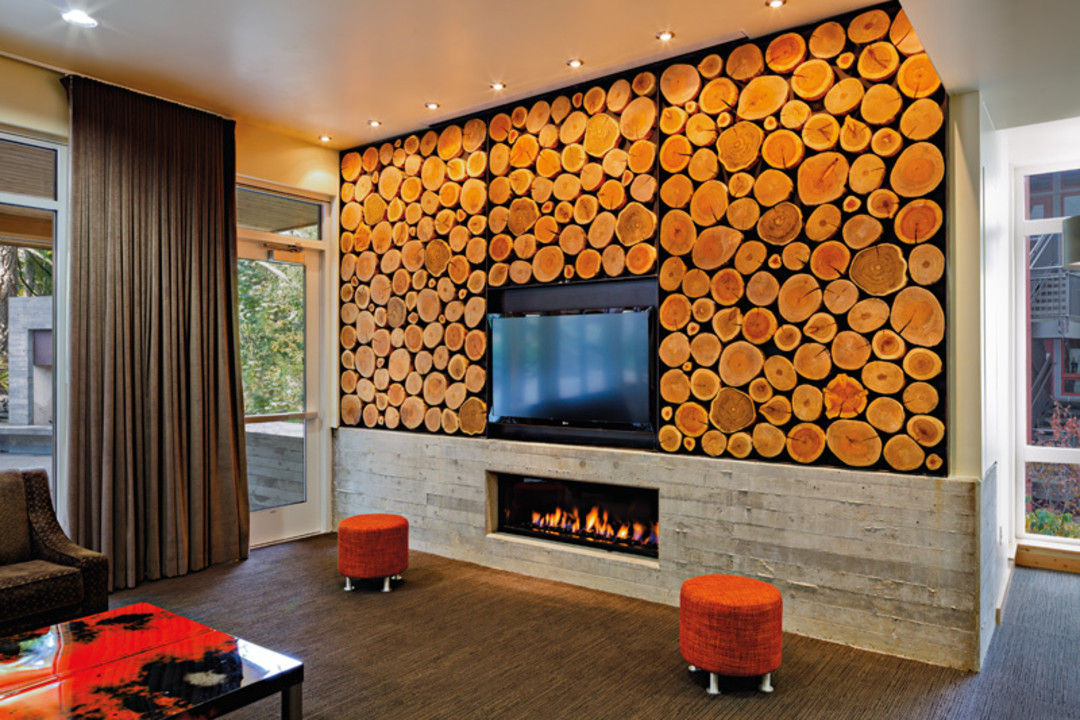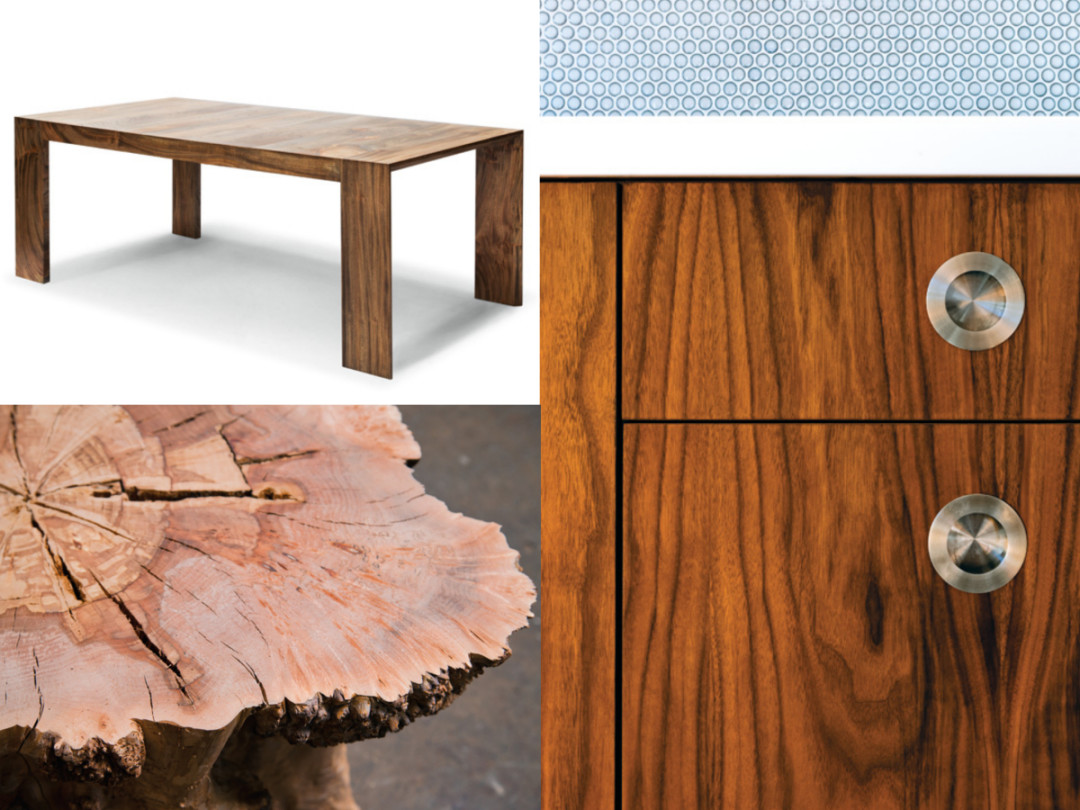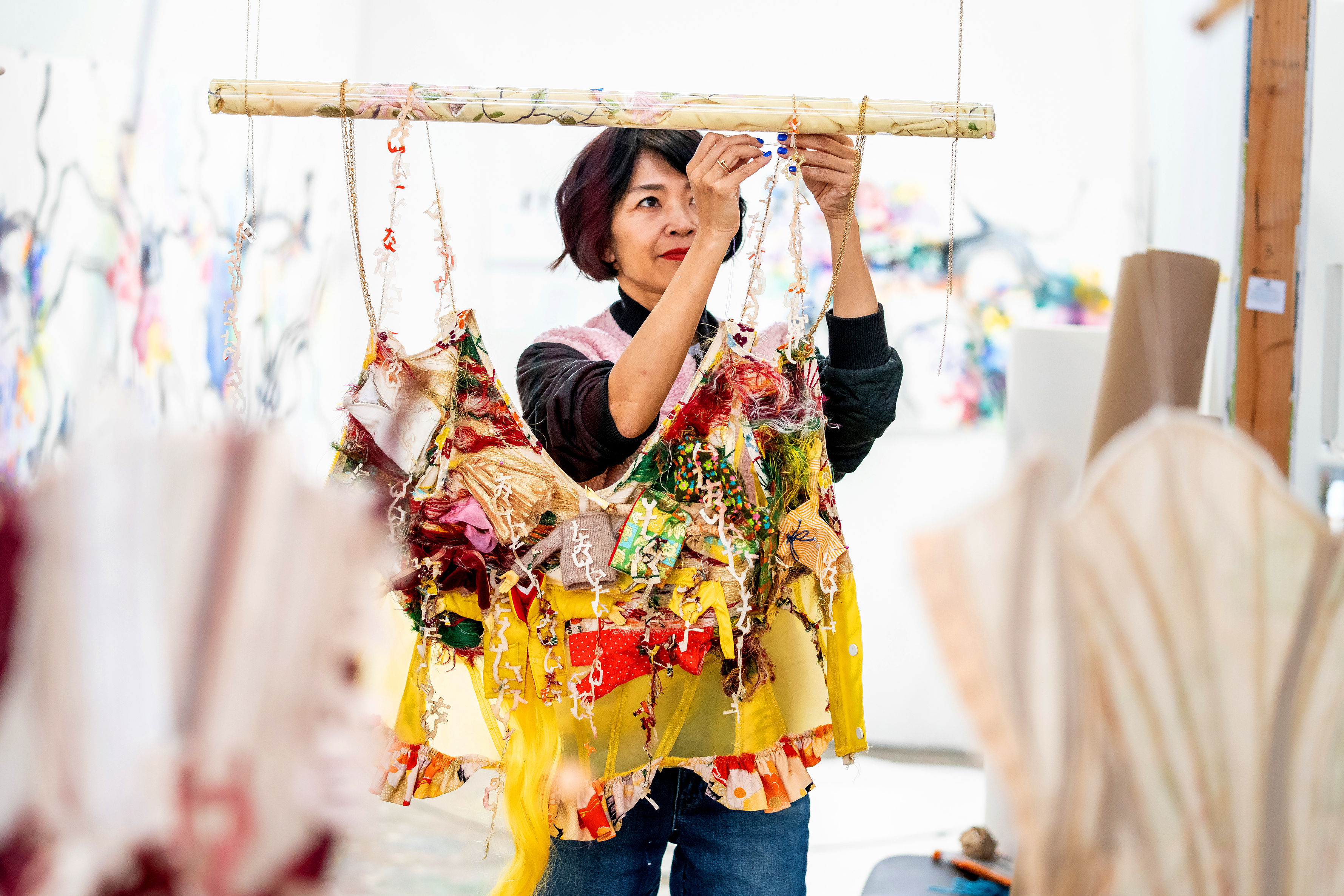How Urban Timberworks Turns Fallen Trees into Legacy Furniture

For a residence hall at Lewis & Clark College, Urban Timberworks reused 75 percent of the big-leaf maple and Douglas fir trees felled on-site for tables, benches, stumps, and a decorative collage of rounds surrounding the fireplace.
Image: Courtesy Lincoln Barbour
City trees live pretty good lives. Towering above our rooftops, Portland’s walnuts, elms, and sycamores provide shade for backyard bouts of whiffle ball, shelter for a long lineage of gray squirrels, and a canvas for declarations of youthful affection. But when they come down, their brawny trunks and limbs all too often meet an inglorious fate, becoming piles of mulch or chips in a landfill.
Urban Timberworks, an offshoot of Portland’s long-running sustainable design-build firm Green Hammer, provides a more honorable afterlife for such giants. When a tree needs to come down—whether for root rot, beetle kill, or storm damage—homeowners call Urban Timberworks. Shop manager Leland Gilmore will scout the tree himself, and if it’s healthy enough, he’ll work with arborists to collect the logs and transport them to a sawmill. Once sawn into hefty slabs, the timber rests in a drying facility for a few years to stabilize, then spends some time in a wood-drying kiln before arriving at Urban Timberworks’ Southeast Portland workshop. There, Gilmore’s small crew of woodworkers deftly transforms the slabs into unique book-matched tables, live-edge countertops, and exquisitely marbled cabinetry.
Urban Timberworks is part of a growing industry built upon the salvaged wood of the West: Urban Hardwoods in Seattle, Urban Woods in Los Angeles, and Goby Walnut in Portland all adhere to similar models. “The furniture costs a bit more because our overhead cost is huge,” Gilmore explains. “But the raw material is still a small part of the cost—and you can’t just mark up for urban salvage. The furniture has to be great, and it has to tell a story.” It’s a fitting end to an illustrious life.

Clockwise from top left: Part of a growing line of pieces, the Jean dining table is made of American red elm, with concealed expansion and contraction joints that allow the unpredictable wood to shift naturally over time. Urban Timberworks often pitches in as a subcontractor on Green Hammer projects, creating custom cabinets, built-ins, and furniture. In this kitchen remodel, satin nickel pulls pop against richly grained Eastern walnut panel faces. Choose your preferred species, diameter, and height, and Urban Timberworks will transform a salvaged stump into a one-of-a-kind side table, footstool, or plant stand.




